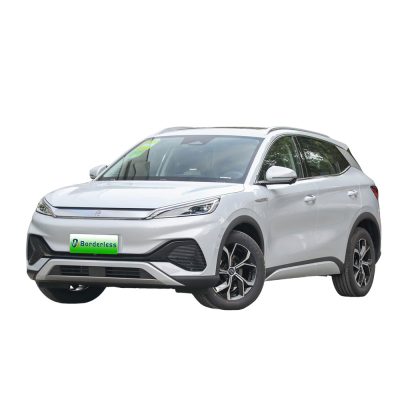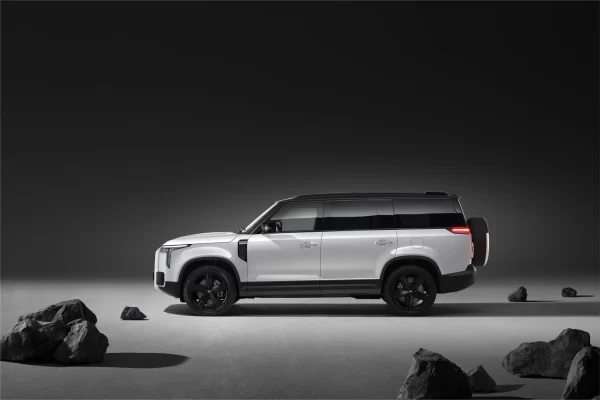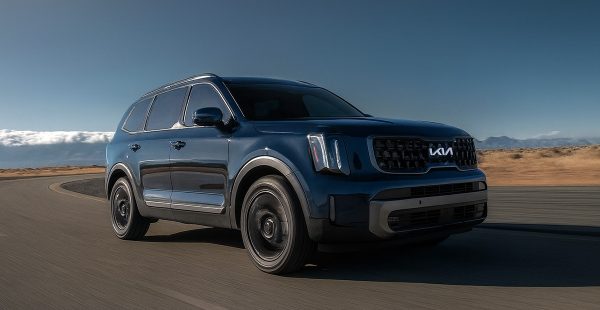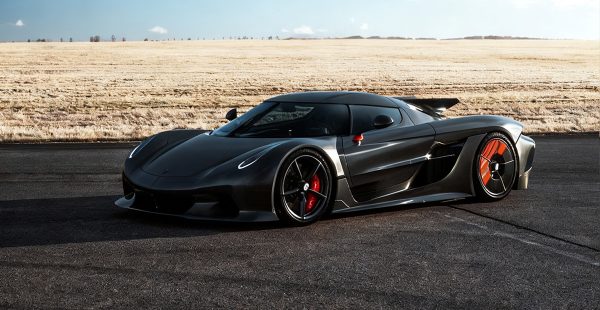2025’s Most Reliable Small Cars: Your Ultimate Guide
When it comes to picking a small car, reliability isn’t just a nice-to-have—it’s the backbone of a stress-free driving experience. Whether you’re a city commuter navigating tight streets, a first-time buyer watching your budget, or a family needing a handy second vehicle, you want a car that shows up for you day in and day out: no unexpected breakdowns, low maintenance costs, and consistent performance.
2025’s small car market is more diverse than ever, blending time-tested gasoline models with innovative electric options that prioritize both dependability and practicality. From vehicles with proven track records of low PP100 scores to those packing reliable batteries and smart, durable tech, the choices can feel overwhelming.
That’s where this guide comes in. We’ve sifted through quality rankings, user feedback, and real-world performance data to highlight the small cars you can trust. Forget the hype—we’re focusing on what matters: cars that keep running smoothly, hold their value, and fit how you actually drive.
How We Rate Small Car Reliability
Our reliability ratings are built on a transparent, multi-faceted methodology. We move beyond marketing claims to provide a data-driven assessment of a vehicle's long-term ownership experience. Our evaluation is based on the following key standards:
- Historical Reliability Data: We analyze extensive data from industry leaders like J.D. Power and Consumer Reports, focusing on problem rates reported over the first 90 days and three years of ownership.
- Proven Track Record & Mechanical Simplicity: We prioritize vehicles with powertrains (engine and transmission) that have been in production for several years, as most issues are typically identified and resolved. Simple, mature mechanical principles contribute to easier and cheaper maintenance.
- Build Quality & Resale Value: Vehicles known for robust construction quality and those that retain a strong resale value are clear indicators of sustained reliability and market trust.
- Powertrain Longevity: The engine and transmission's track record for durability and freedom from major repairs is the most critical factor.
- Electronic Systems & Infotainment: We scrutinize the complexity and failure rates of touchscreens, sensors, and driver-assistance features, which are common modern trouble spots.
- Owner Satisfaction & Verdicts: Long-term owner testimonials and fleet data provide real-world context that complements statistical findings.
- In-Depth Vehicle Safety Performance:We firmly believe that a reliable car must be a safe car. A critical part of our evaluation involves scrutinizing crash test results from leading global agencies like IIHS and Euro NCAP. We assess scores for occupant protection, pedestrian safety, and the availability of standard advanced driver-assistance systems (ADAS).
Our Top Picks: The Most Reliable Small Cars for 2025
8. Wuling Binguo
The Wuling Binguo is a practical electric small car known for its reliability and affordability, building on Wuling's success in the EV space. It targets urban users who need a dependable vehicle for daily trips without high costs.
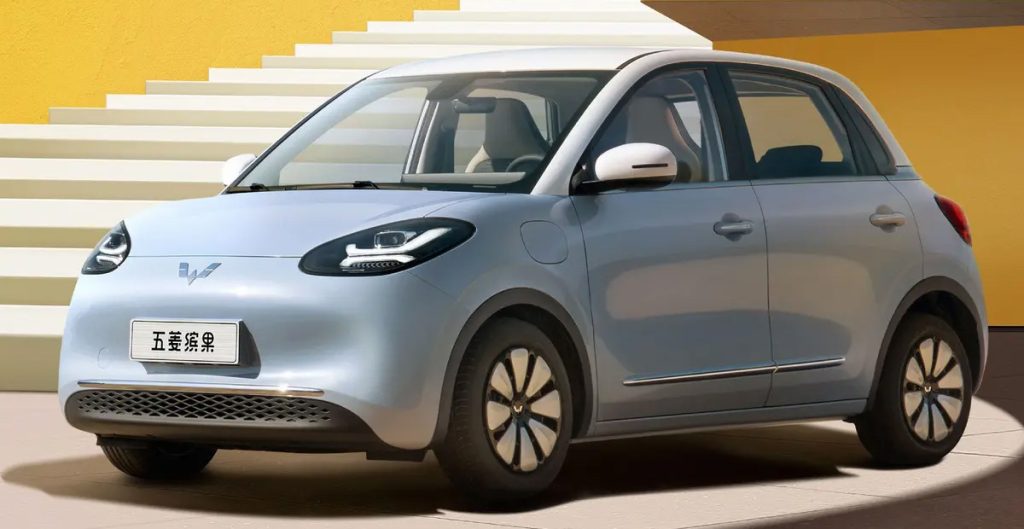
- Historical Reliability Data: According to market analyses and consumer feedback, the Binguo demonstrates low problem rates within the first 90 days and promising three-year reliability, consistent with Wuling's reputation for producing sturdy small cars.
- Proven Track Record and Mechanical Simplicity: The electric powertrain has been optimized through Wuling's experience with models like the Hongguang Mini EV, leading to a simple design that minimizes maintenance and repair issues.
- Build Quality and Resale Value: Despite its low price, the Binguo features robust construction that helps maintain a good resale value in its segment. This quality build is a clear indicator of its long-term reliability.
- Powertrain Durability: The motor and battery are built to last, with many examples showing reliable performance over extended use. Fleet and owner data confirm low incidence of major powertrain failures.
- Electronic Systems and Infotainment: The Binguo's electronic systems are designed for simplicity and reliability, resulting in fewer malfunctions in areas like touchscreens and sensors. This approach reduces common electronic pitfalls.
- Owner Satisfaction and Market Feedback: Users often highlight the Binguo's reliability and low operating expenses, with long-term reviews indicating high satisfaction. Fleet operations data supports its dependability in various conditions.
- In-depth Safety Performance: The Binguo meets basic safety standards with adequate crash test results from relevant authorities. It includes reliable safety features and ADAS that perform consistently, ensuring safety without compromising the vehicle's dependable nature.
7. BYD Seagull
The BYD Seagull is an electric small car that combines BYD's expertise in battery technology with a commitment to reliability. It offers an eco-friendly option without sacrificing durability, making it ideal for cost-conscious and environmentally aware drivers.
- Historical Reliability Data: Early data from industry monitors like J.D. Power and local reports indicate the Seagull has low problem rates in initial ownership phases, with positive projections for three-year reliability based on BYD's track record in EVs.
- Proven Track Record and Mechanical Simplicity: The Seagull's electric powertrain, including BYD's Blade Battery, benefits from years of development. This maturity translates to fewer mechanical issues and straightforward maintenance, enhancing overall reliability.
- Build Quality and Resale Value: BYD's focus on quality manufacturing ensures the Seagull has a solid build, which supports strong resale value in the competitive EV market. Its durability is a key factor in maintaining consumer trust.
- Powertrain Durability: The battery and electric motor are designed for long life, with warranties and real-world use showing minimal degradation over time. This reduces the likelihood of major repairs and boosts owner confidence.
- Electronic Systems and Infotainment: The Seagull incorporates modern electronics, but BYD's integration emphasizes reliability to avoid common faults. User reports suggest low failure rates for systems like the infotainment display and ADAS.
- Owner Satisfaction and Market Feedback: Owners report high satisfaction with the Seagull's reliability and efficiency, supported by fleet data that shows consistent performance. Market reviews often praise its low maintenance needs and dependable operation.
- In-depth Safety Performance: Safety evaluations from agencies like C-NCAP (China New Car Assessment Program) show good scores for occupant protection and standard ADAS. The vehicle's safety systems are reliably implemented, aligning with overall dependability.
6. Changan Lumin
The Changan Lumin is a compact electric vehicle designed for urban mobility, emphasizing simplicity and reliability. Its affordable price and efficient design make it a popular choice for city dwellers seeking a dependable small car.
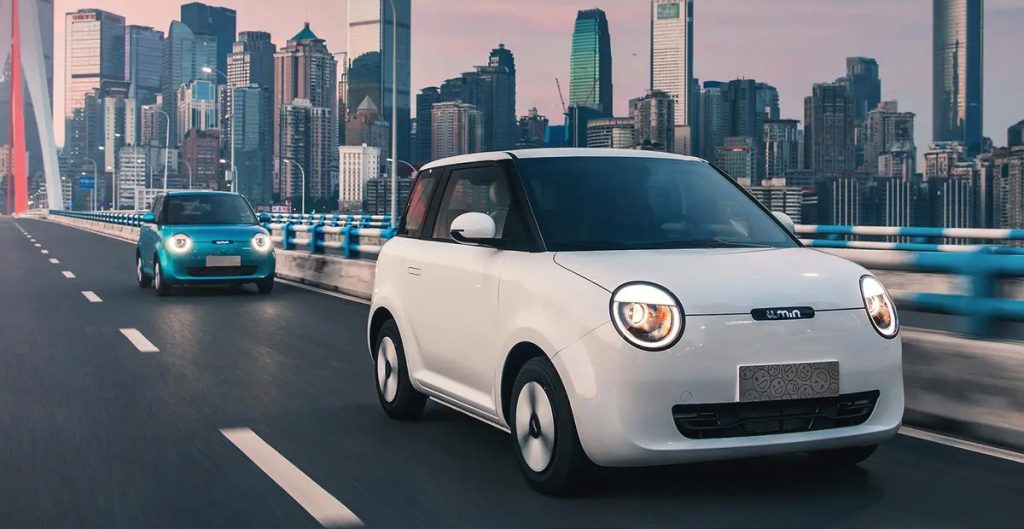
- Historical Reliability Data: Based on initial market data and consumer reports, the Lumin shows low problem rates in the first 90 days, with early indicators suggesting good long-term reliability for its class, supported by Changan's growing reputation.
- Proven Track Record and Mechanical Simplicity: As an EV, the Lumin's powertrain is inherently simpler with fewer mechanical components. The electric motor and battery have been refined through Changan's experience, resulting in easy maintenance and reduced failure risks.
- Build Quality and Resale Value: Despite its budget orientation, the Lumin is built with durable materials that contribute to a respectable resale value in the micro-EV segment. This reflects its ability to withstand daily use without significant degradation.
- Powertrain Durability: The electric powertrain is engineered for durability, with many units showing minimal wear over time. User reports and fleet data indicate reliable performance under typical urban driving conditions.
- Electronic Systems and Infotainment: The Lumin's electronic features are kept basic to enhance reliability, leading to lower incident rates for issues like infotainment failures. This simplicity aligns with its focus on essential functions.
- Owner Satisfaction and Market Feedback: Owners appreciate the Lumin for its reliability and low running costs. Surveys and community feedback often highlight few mechanical problems, making it a trusted option for short commutes.
- In-depth Safety Performance: While basic, the Lumin meets key safety standards with decent crash test results from regional assessments. It includes fundamental safety features that perform reliably, ensuring adequate protection for its category.
5. AION Y
The AION Y represents the evolution of electric vehicles with a focus on reliability and innovation. As a product of GAC Group's AION brand, it leverages advanced technology while maintaining a strong record for durability and owner satisfaction.
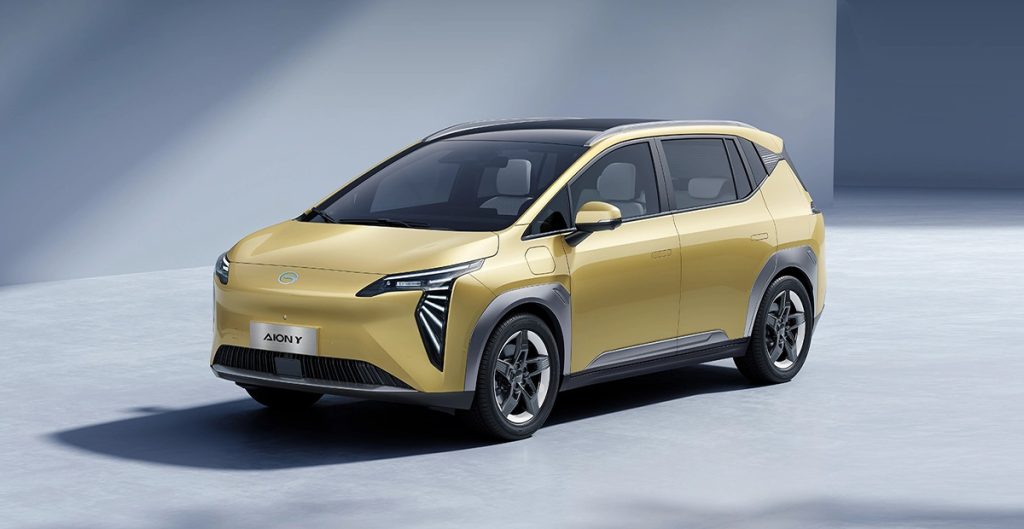
- Historical Reliability Data: Although newer, data from industry sources like consumer feedback and initial quality surveys show the AION Y has low problem rates in early ownership periods, with promising trends for long-term reliability as more data accumulates.
- Proven Track Record and Mechanical Simplicity: The electric powertrain, including the motor and battery system, benefits from GAC's experience in EV production. Simplified mechanics compared to internal combustion engines reduce moving parts, leading to fewer maintenance needs and higher reliability.
- Build Quality and Resale Value: Built with quality materials and modern manufacturing techniques, the AION Y holds its value well in the growing EV market. Its solid construction is indicative of long-term durability and consumer confidence.
- Powertrain Durability: The electric motor and battery are designed for longevity, with warranties and real-world data supporting their ability to perform over many years without major issues. This reduces the risk of costly repairs.
- Electronic Systems and Infotainment: The AION Y features advanced infotainment and ADAS, but these are integrated with a focus on reliability. Reports indicate controlled failure rates for touchscreens and sensors, thanks to rigorous testing.
- Owner Satisfaction and Market Feedback: Early adopters and fleet operators report high satisfaction with the AION Y's reliability and efficiency. Market reviews highlight its low operating costs and dependable performance in daily use.
- In-depth Safety Performance: Safety tests from agencies like Euro NCAP demonstrate strong scores for crash protection and standard ADAS. The vehicle's electronic safety systems are designed to be robust, ensuring safety without introducing reliability concerns.
4. Volkswagen Polo
The Volkswagen Polo combines European engineering with a reputation for solid build quality and reliability. It appeals to those seeking a refined small car that delivers consistent performance and safety over the long term.
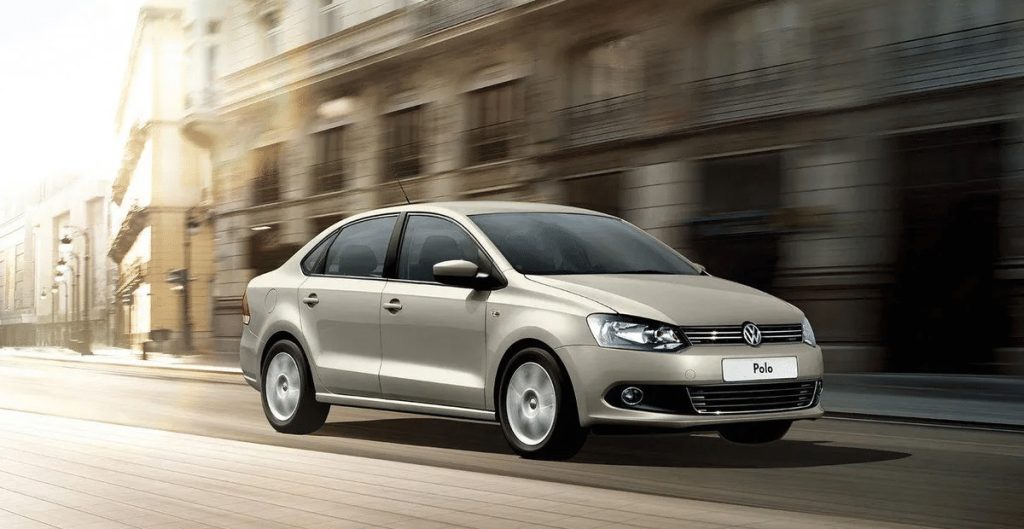
- Historical Reliability Data: Data from J.D. Power and European reliability studies show the Polo has competitive problem rates in the first 90 days and after three years, often ranking well for initial quality and durability in its segment.
- Proven Track Record and Mechanical Simplicity: The Polo's powertrain options, including turbocharged engines and manual or automatic transmissions, have been evolved over multiple generations. This maturity ensures most mechanical issues are resolved, facilitating easier repairs.
- Build Quality and Resale Value: Volkswagen's emphasis on high-quality materials and precision manufacturing gives the Polo a strong resale value. Its robust construction is a testament to its long-term reliability and market trust.
- Powertrain Durability: Engines and transmissions in the Polo are known for their durability, with many models achieving high mileage without major failures. Real-world data from fleet users supports this resilience.
- Electronic Systems and Infotainment: While featuring advanced infotainment and ADAS, the Polo's systems are engineered to minimize complexity-related failures. Industry reports indicate lower failure rates compared to some competitors with more intricate setups.
- Owner Satisfaction and Market Feedback: Owners frequently commend the Polo for its reliable performance and comfortable ride. Long-term reviews and fleet statistics reveal high satisfaction levels due to minimal repairs and consistent operation.
- In-depth Safety Performance: The Polo earns top ratings from Euro NCAP and IIHS, excelling in occupant and pedestrian protection. Standard ADAS features are integrated reliably, contributing to overall safety without compromising the vehicle's dependability.
3. Honda LIFE
As a sibling to the Honda Fit, the Honda LIFE shares many reliability traits, offering a compact and efficient package that appeals to budget-conscious buyers. Its focus on simplicity and proven components makes it a reliable choice in the small car market.
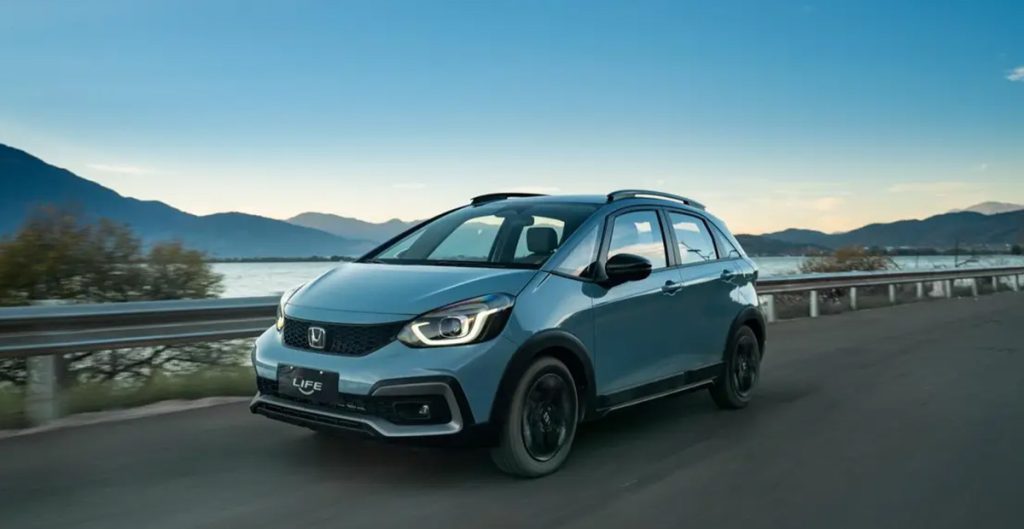
- Historical Reliability Data: According to Consumer Reports and J.D. Power, the Honda LIFE exhibits low incident rates for problems within 90 days and over three years, aligning with Honda's overall strong reliability rankings.
- Proven Track Record and Mechanical Simplicity: The LIFE utilizes a well-established powertrain, similar to other Honda models, which has been optimized over time to eliminate common flaws. This results in easy maintenance and fewer unexpected repairs.
- Build Quality and Resale Value: Built with Honda's attention to detail, the LIFE features durable construction that supports a steady resale value. Its reputation for quality helps retain value better than many rivals.
- Powertrain Durability: The engine and transmission are designed for endurance, with a history of reliable performance in various conditions. Long-term tests show they require minimal intervention, reducing ownership costs.
- Electronic Systems and Infotainment: The car's electronic systems, including its infotainment display, are integrated with a focus on reliability rather than complexity. This leads to lower failure rates in areas like touchscreen responsiveness and ADAS sensors.
- Owner Satisfaction and Market Feedback: Feedback from long-term owners highlights the LIFE's reliability and efficiency, with many noting few issues over years of use. Fleet data corroborates this, showing high uptime and satisfaction.
- In-depth Safety Performance: The LIFE scores well in crash tests by organizations like IIHS, providing robust occupant protection and standard safety technologies. Its ADAS suite is designed to be reliable, enhancing safety without adding failure-prone electronics.
2. Toyota YARiS L Zhixuan
The Toyota YARiS L Zhixuan stands out for its exceptional reliability and cost-effectiveness, built on Toyota's legacy of producing durable vehicles. It is ideal for urban drivers who prioritize low ownership costs and proven performance over time.
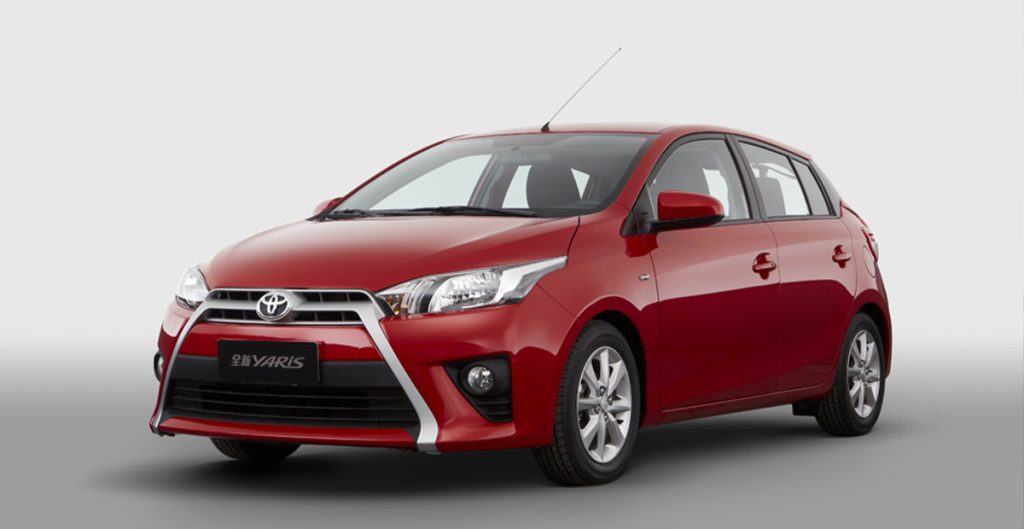
- Historical Reliability Data: Industry data from sources like J.D. Power indicates that the YARiS L Zhixuan has consistently low problem rates in both short-term (90-day) and long-term (3-year) periods, often outperforming competitors in reliability surveys.
- Proven Track Record and Mechanical Simplicity: With a powertrain that has been in production for years, such as the efficient engine and manual or automatic transmission options, this model benefits from extensive refinement. Simple mechanical designs make repairs affordable and accessible.
- Build Quality and Resale Value: Toyota's high manufacturing standards ensure the YARiS L Zhixuan boasts solid build quality, which contributes to its strong resale value. This durability is a key indicator of its lasting appeal in the market.
- Powertrain Durability: The engine and transmission are engineered for longevity, with many units lasting well over 100,000 miles without significant issues. Fleet data and owner reports confirm minimal need for major repairs.
- Electronic Systems and Infotainment: The infotainment and ADAS features are kept relatively basic to enhance reliability, resulting in fewer electronic glitches. This approach reduces common failure points like sensor malfunctions.
- Owner Satisfaction and Market Feedback: Owners consistently report high satisfaction due to the car's dependable performance and low running costs. Market reviews and fleet operations data support its reputation as a trustworthy daily driver.
- In-depth Safety Performance: Safety assessments from IIHS and similar agencies show good scores for crash protection and standard safety features. The model includes essential ADAS, ensuring it meets modern safety expectations without introducing complexity that could affect reliability.
1. Honda Fit
The Honda Fit has consistently proven itself as a benchmark for reliability in the small car segment, thanks to its balanced blend of practicality, efficiency, and durability. It excels in multiple reliability metrics, making it a top choice for buyers seeking a vehicle that minimizes long-term ownership costs while delivering a smooth driving experience.
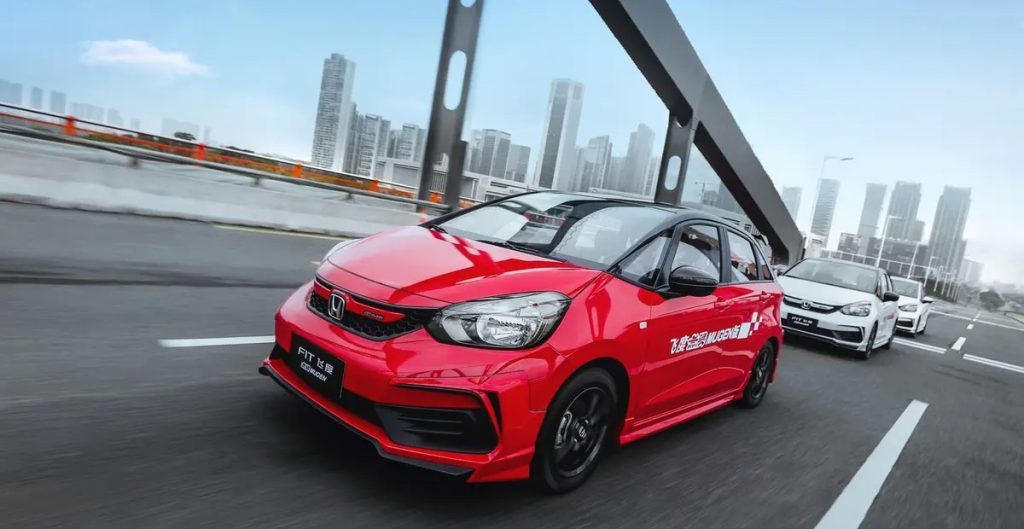
- Historical Reliability Data: Based on reports from J.D. Power and Consumer Reports, the Honda Fit demonstrates low problem rates within the first 90 days of ownership and over three years, often ranking among the top models for initial quality and long-term dependability in its class.
- Proven Track Record and Mechanical Simplicity: The Fit's powertrain, including its 1.5-liter engine and continuously variable transmission (CVT), has been refined over many years of production. This maturity means most common issues have been addressed, resulting in straightforward maintenance and reduced repair frequency.
- Build Quality and Resale Value: Honda's reputation for robust manufacturing is evident in the Fit, which maintains strong resale value due to its durable materials and consistent performance. This high resale rate reflects market confidence in its longevity.
- Powertrain Durability: The engine and transmission are known for their resilience, often enduring high mileage without major overhauls. Real-world data from fleet operators shows minimal failures, even under varied driving conditions.
- Electronic Systems and Infotainment: While equipped with modern features like touchscreen interfaces and basic driver assistance, the Fit's electronic systems are designed with simplicity in mind, leading to lower failure rates compared to more complex setups in rivals.
- Owner Satisfaction and Market Feedback: Long-term owners frequently praise the Fit for its reliability, fuel efficiency, and low maintenance costs. Surveys and fleet data highlight high satisfaction scores, reinforcing its trusted status.
- In-depth Safety Performance: The Fit earns top ratings from IIHS and Euro NCAP, offering excellent occupant protection, pedestrian safety features, and standard advanced driver-assistance systems (ADAS) that enhance overall safety without compromising reliability.
Which One Is Right For You? A Personalized Guide
Choosing the perfect car depends on your lifestyle. To make your decision easier, we've matched our top picks to specific driver profiles.
- For the Urban Commuter: If your priority is navigating city streets with ease, legendary fuel efficiency, and park-anywhere size, the Honda Fit and Toyota YARiS L are unbeatable. They are the definition of low-cost, hassle-free ownership.
- For the Tech-Savvy & Style-Conscious Driver: Want an EV that doesn't compromise on space, technology, or design? The AION Y offers a surprisingly spacious interior packed with the latest tech, while the Volkswagen Polo delivers a sophisticated infotainment system and a refined European feel.
- For the Budget-First & Eco-Conscious City Dweller: If your goal is minimal environmental impact and the lowest possible purchase price, the Chinese EVs are perfect. The Changan Lumin and Wuling Binguo are ultra-affordable runabouts. For a perfect balance of range, features, and value, the BYD Seagull stands out.
- For the Practical & Versatile User: Need a car that can handle a weekend trip as well as a grocery run? The Honda LIFE and Honda Fit offer incredible interior flexibility (the "Magic Seats") in a compact, reliable package.
How to Get the Best Possible Price
Your journey to a reliable car shouldn't end with research—it should end with confidence, both in your vehicle and your purchase. We make securing a great deal on a dependable car straightforward and transparent.
Use Our Online Tools: You can configure your perfect car right here on our website and get an instant, transparent, no-haggle price quote. Know exactly what you'll pay, with no hidden fees.
Choosing one of the highly reliable small cars featured in this guide is a smart financial decision. It means saving money on unexpected repairs and avoiding the hassle of breakdowns. Remember, every model on our list is backed by extensive reliability data from industry leaders, ensuring you invest in a vehicle built to last.
Use this guide as your starting point. When you're ready, we're here to help you drive home a car you can trust for years to come.
Common Small Car Issues & Reliability Maintenance Tips
While modern small cars are engineered for durability, being aware of common wear points and practicing proactive maintenance are key to maximizing their lifespan and reliability. Here’s a quick guide to help you avoid common pitfalls.
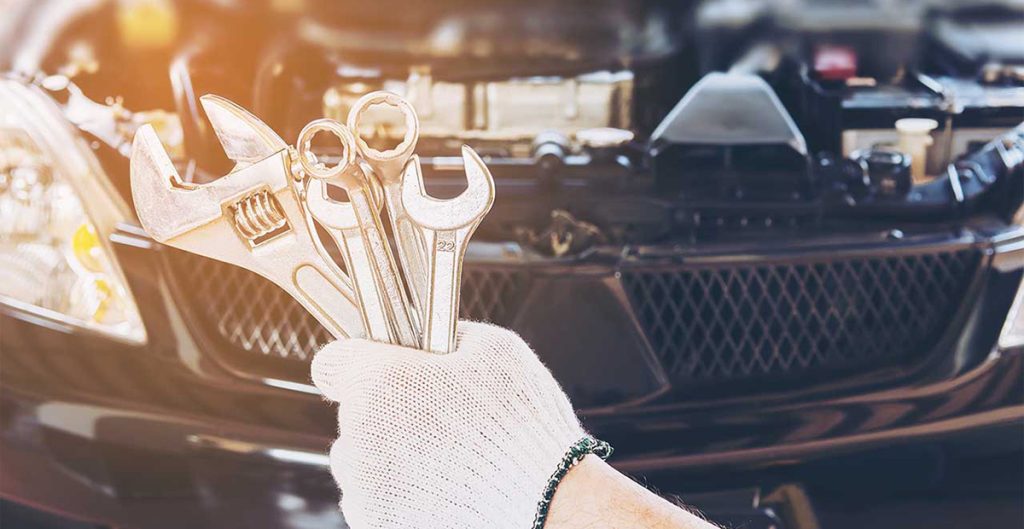
Common Issues to Watch For:
- CVT Transmission Hesitation or Jerking: Many small cars use CVTs for fuel efficiency; this issue often stems from old, degraded transmission fluid or a clogged filter, not major mechanical failure.
- Engine Idling Roughly: Typically caused by dirty spark plugs, a clogged air filter, or old fuel injectors—simple, low-cost parts that wear faster in city-driven small cars.
- Powertrain Mounts: Engine and transmission vibrations can become noticeable if mounts wear out.
- CV Joints & Driveshafts: Clicking sounds during turns, especially in front-wheel-drive models, often signal worn CV joints.
- Electronic Sensors: Mass airflow and oxygen sensors are crucial for engine efficiency and can degrade over time.
- Wear-and-Tear Components: Brake pads, tires, and 12V batteries have a finite lifespan and are common service items.
Proactive Maintenance Tips for Long-Term Reliability:
- Adhere to the Schedule: Strictly follow the manufacturer's recommended service intervals for oil changes, fluid flushes, and inspections.
- Listen and Feel: Pay attention to new noises, vibrations, or changes in performance; address them early.
- Use Quality Parts: Insist on high-quality replacement parts and fluids to ensure longevity and performance.
- Battery Care (for EVs & all cars): For EVs, avoid consistently charging to 100% or draining to 0% for daily use. For all cars, monitor the 12V battery health, especially after 3-4 years.
- Keep Software Updated: Ensure your infotainment and, if applicable, powertrain control software are up-to-date for optimal performance and bug fixes.
By understanding these common issues and following these simple tips, you can significantly enhance your car's reliability and enjoy a worry-free ownership experience for years to come.
Frequently Asked Questions
Manual wins: fewer parts, no oil-pressure electronics. If you need an auto, budget for a 30k-mile CVT fluid change; the latest Honda and Toyota steel-belt units average 180k miles when serviced.
Honda Fit and VW Polo retain ±60 % after 3 years; Toyota YARiS L ≈58 %; BYD Seagull projected at 55 % thanks to blade-battery lifetime warranty.
EVs typically have fewer moving parts (no engine, transmission), leading to lower routine maintenance costs and fewer failure points. However, battery longevity is a consideration. Models with mature battery tech (e.g., BYD’s Blade Battery) demonstrate strong durability. Gasoline cars benefit from decades of refinement and widespread service networks.
This is an excellent question. Many brands do build reliable cars, and our selection was not a dismissal of others' quality. Our final list represents the pinnacle of performance within our specific, multi-factor evaluation framework for the 2025 small car segment.

